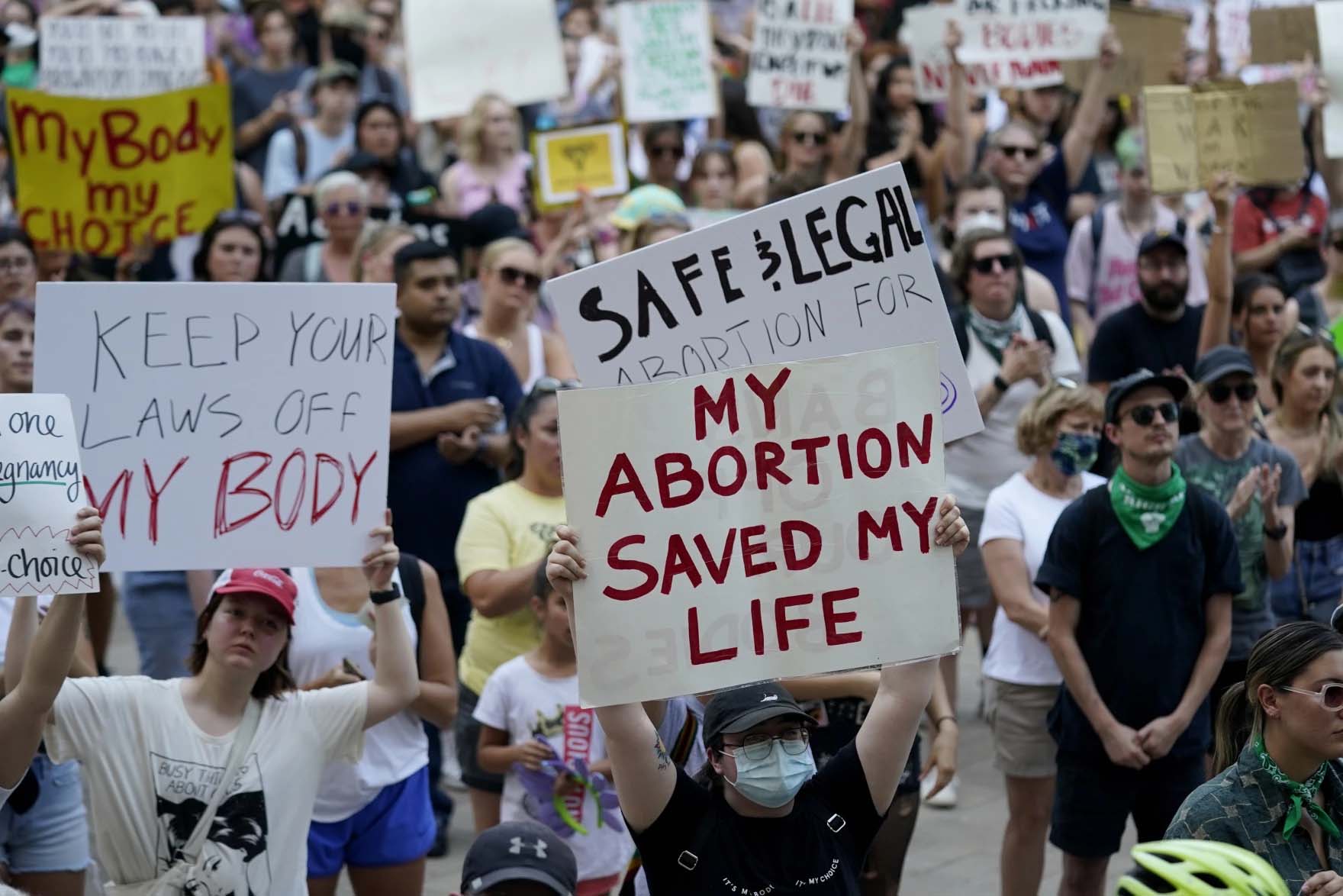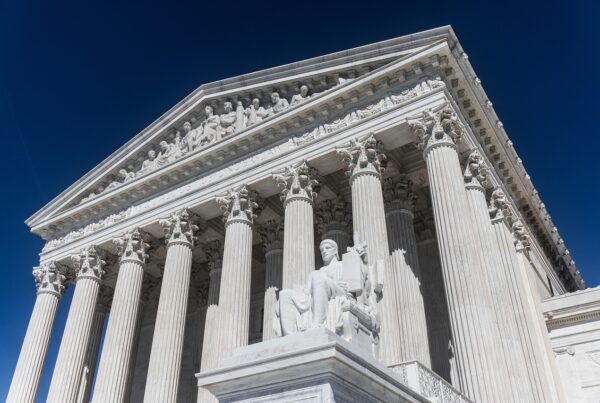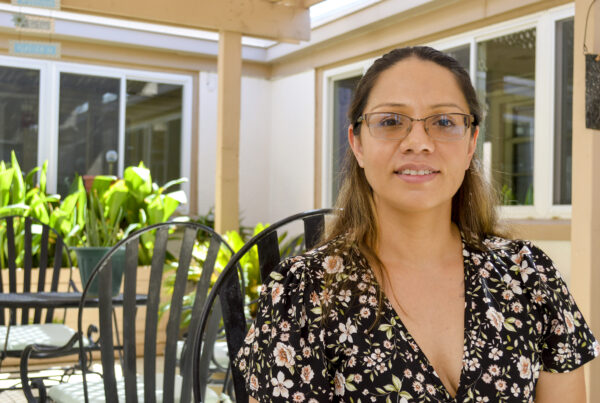From KERA News:
The Texas Supreme Court heard arguments Tuesday morning over whether a medical exemption in the state’s strict abortion ban is too vague to help people with life-threatening pregnancy complications.
Now the justices must decide whether to allow a temporary injunction on Senate Bill 8, the 2021 law that bans abortions in Texas after cardiac activity in the fetus — about six weeks of pregnancy — except in medical emergencies.
SB 8 opens physicians who facilitate an abortion outside of emergency conditions to civil liability. The Supreme Court’s 2022 reversal of Roe v. Wade triggered another Texas law that made performing abortions a felony.
The justices heard oral arguments Tuesday morning from the state attorney general’s office and the Center for Reproductive Rights, represented by attorney Molly Duane, who argued the plaintiffs — a group of women and two medical professionals — want clarity so Texas patients and physicians like them can avoid facing harsh consequences for facilitating necessary abortions.
The plaintiffs say the law’s emergency exception is ambiguous and failed to protect them when they needed to receive or perform abortions in emergency situations.
“The abortion bans as they exist today subject physicians like my clients to the most extreme penalties imaginable — life in prison and loss of their medical license,” Duane argued in court. “And while there is technically a medical exemption to the bans, no one knows what it means and the state won’t tell us.”
Since August, the number of plaintiffs in the case has grown to 22. New plaintiffs include Lauren Van Vleet, who told KERA when she learned the fetus would be born with a fatal brain anomaly when she was 22 weeks pregnant, she made the tough decision to travel to Maryland for an abortion rather than carrying the pregnancy to term.
She said when she learned of the case and found other plaintiffs who shared her experience, she chose to join them.
“I just hope that they make the right choice for the women in Texas so that women don’t have to go through the trauma that the 22 of us have gone through,” Van Vleet said.
In July, four women gave emotional testimony in front of District Court Judge Jessica Mangrum recounting the moments they realized continuing their pregnancies could be deadly for them or their children.
Mangrum ruled Aug. 4 that SB 8 violated the Texas Constitution, and blocked the state from enforcing the abortion ban as it applies to people with life-threatening pregnancy complications and the physicians who treat them.
Attorney General Ken Paxton’s office appealed the decision to the state Supreme Court later that same day, blocking the ruling from taking effect.
Assistant Solicitor General Beth Klusmann argued Tuesday state law provides sufficient exceptions as needed for medical emergencies, including a law passed in June that allows physicians to use “reasonable medical judgment” in exercising medical care in case of ectopic pregnancies, or “previable premature rupture of membranes,” also known as PPROM.
Klusmann said patients can instead choose to sue doctors themselves for medical malpractice if they’re not given an abortion when they feel their pregnancy complications fall under the medical exemption. But, she said, neither the state nor state officials are responsible for how doctors use their reasonable medical judgment.
“I think with allowing reasonable medical judgment, you avoid the possibility of getting it wrong and ending up in prison,” she told the justices. “Not everyone has to agree with you, in other words. As long as your judgment is reasonable, you should be fine under this law.”
Justice Evan Young questioned whether ruling in the plaintiffs’ favor would have unintended consequences. For example, Young said, giving police officers the standing to challenge laws against excessive force if they’re sued.
But the two situations aren’t comparable, Duane said, because police officers have certain protections while she said physicians are at the whim of the state when it comes to their licenses and patients.
“The law has been in effect and the effects are so crystal clear that we don’t need to guess at it,” Duane said. “And I just want to point out, right, that we are not talking about hypothetical harms. These are real patients, many of whom are sitting in the courtroom today.”














